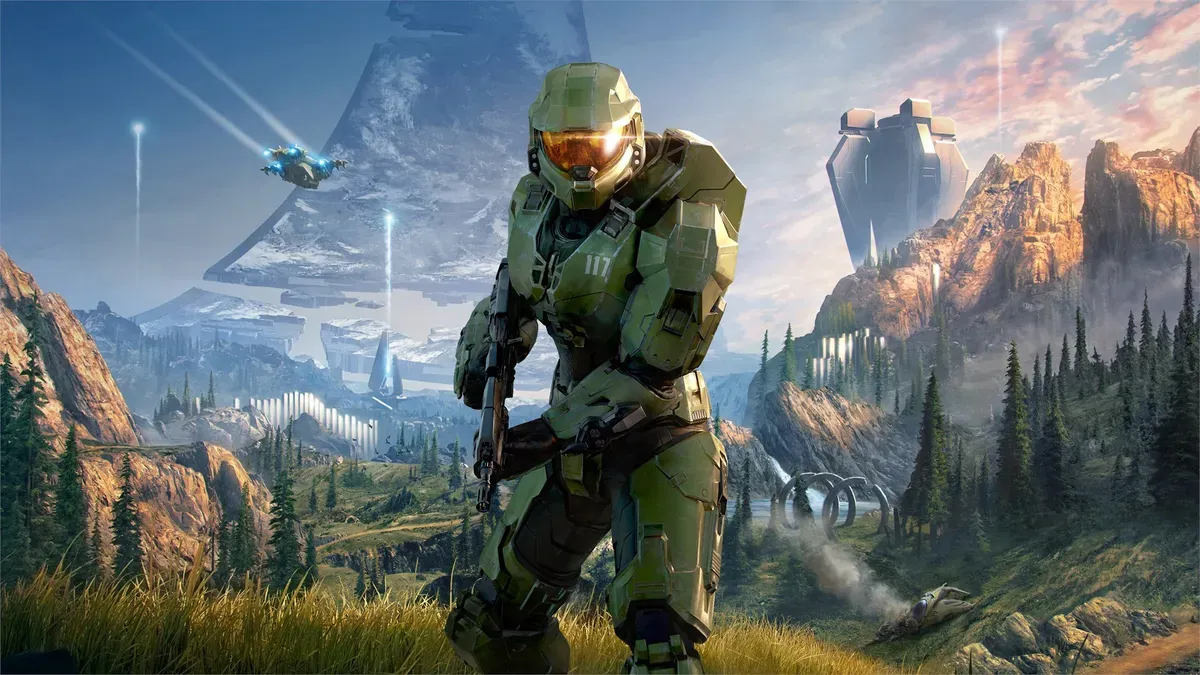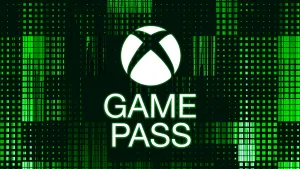Xbox Game Pass and Games
At least 50% off from FlexSub
Subscribe Now
Xbox Game Pass Ultimate is a great value all-you-can-play video game subscription service. It has grown far beyond its Xbox-centric roots to become a subscription that offers something for everyone who enjoys gaming, including console and PC game downloads, access to online multiplayer services, a partnership with gaming behemoth EA, and a cloud-based service that streams games to nearly any device. It also includes a large number of Day 1 launch games from Microsoft's own studios.
It can be difficult to locate the correct version of Game Pass. Microsoft offers several versions, but due to how the features are divided, only the $15-per-month Ultimate plan, which we'll abbreviate to XGPU, with all of the benefits listed above, makes sense.
That collection of features, for less than the price of a 4K Netflix subscription, earns Game Pass Ultimate an Editors' Choice Award, particularly if you have the less expensive (and occasionally discounted) Xbox Series S console.
Pick the right plan
The basic Game Pass is $10 per month and includes a library of games ranging from well-known to obscure that you can download and play on Xbox One, Xbox Series X, and Xbox Series S consoles. As with all subscriptions, games enter and exit the library on a regular basis due to licencing agreements, but Microsoft staples like Halo and Forza are usually permanent. Even if a game is removed from the library, you can still transfer your progress to another storefront, such as Steam — not easily, but it is possible.
If you want to play online multiplayer games, you'll almost always need a separate $10 per month Xbox Live subscription to do so. That's included in the Ultimate package, so you can see why that's the route Microsoft wants you to take.
It's worth noting that free-to-play games, such as Fortnite, don't require an Xbox Live subscription to play multiplayer.
The $10 per month Game Pass for PC plan downloads and instals a subset of games from the full Game Pass library to run locally rather than streaming via a Windows-only Xbox app. Because these are full-fledged PC games, you'll need a gaming laptop or desktop with a graphics card and a powerful enough processor, as well as plenty of hard drive space. Game Pass for PC also includes EA Play, a subscription that costs $5 per month or $30 per year on its own.
However, the Xbox Game Pass Ultimate subscription offers the best value. For $15 per month, you get both the console and PC game libraries, EA Play's perks and discounts, and Xbox Gold, which focuses on online multiplayer games and costs $10 per month on its own. To top it all off, Xbox Cloud Gaming allows you to play on phones, iPads, and even a Mac. You'd be hard pressed to find a better deal for anyone who enjoys both console and PC gaming, especially as cloud gaming becomes more prevalent.
Game selection
The majority of the service's 400 games are action-adventure games and shooter series like Battlefield, Destiny 2, Gears of War, and Halo. According to our calculations, action/adventure games accounted for 30% of Game Pass titles, with shooters accounting for the remaining 15%. RPGs and sports games did well as well, but horror and puzzle fans will find a smaller selection (about 5% of the library). Nonetheless, Game Pass includes classic platformers like Banjo Kazooie, matching and puzzle games, RPGs, and unique indie games like Twelve Minutes and Hades.
The games are organised into categories so that you can quickly find games that are family-friendly, action-packed, or even a last chance at games that will be removed from the platform soon. Game Pass is such a comprehensive, user-friendly service; once you've found a title that piques your interest, simply download it to begin playing.
The Game Pass Ultimate difference: Breadth and depth
For several reasons, Microsoft has unrivalled advantages over competitors for its intended purpose. The company has a long history in gaming, having launched Microsoft Flight Simulator nearly 40 years ago and the Xbox more than 20 years ago, and it owns the DirectX graphics programming interface, which is used by both Windows and its Xbox consoles. It has well-established game development studios and acquires more independent studios every year, in addition to having relationships with every major game developer. And it runs a massive network of cutting-edge data centres dedicated to serving cloud applications: Xbox Cloud Gaming is as much about Azure as it is about having fun.
The key word here is "intended purpose," because XGPU is only one of our two cloud-gaming Editors' Choice Awards, alongside Nvidia GeForce Now. XGPU is a good choice for almost anyone if you don't already have a large library of games or if you want to play them on any device. GeForce Now is ideal for more experienced gamers who already have a large library of PC games and want to play them on any device at high quality and frame rates.
Both complement each other more than compete, and they require the least amount of adaptation work for developers, ensuring rapid growth in the number of supported games. It is likely that signing licencing agreements will take longer than preparing a game for either service.
Most of XGPU's competitors, on the other hand, only address parts of the puzzle; for example, both Google Stadia and Amazon Luna have robust networks for streaming to multiple devices, but they have small game libraries because the games are more difficult to bring over.
And, in an irritating irony, Sony had the most of a head start on cloud gaming and blew it, leaving PSNow as a nice, and relatively inexpensive, choice as a game library for the PlayStation that doesn't even offer Sony's newest exclusives like XGPU does.
Where it falls short
XGPU, as a jack-of-all-trades, does not master all aspects. For example, its cloud gaming stream is still limited to 1080p at 60fps, whereas Stadia and GeForce Now can do 4K and 1440p at 120fps, respectively.
And there are few things more vexing than sitting down to play on your PC only to discover that the game won't launch until you update Windows because the Xbox app is too tightly integrated with the Microsoft Store – a major buzzkill that has frequently compelled us to move on to other, non-Game Pass games.
It has a significant number of new games and Day 1 launches, but the library also loses games on a regular basis. The game (or movie or TV show) you want always appears to be on the service you don't subscribe to, as with many subscription services.
While it's great that EA Play is included in the XGPU subscription price, it's not tightly integrated. On the PC, for example, you must still instal another launcher, and family settings in XGPU do not apply to EA Play.
The value play
When it first launched, Game Pass felt similar to Netflix's early streaming days: an intriguing concept with a limited catalog. It is now the default release platform for major games from Microsoft-related publishers like Bethesda, as well as hit series like Halo and Forza.
It's difficult to justify purchasing an Xbox without also subscribing to Game Pass Ultimate, which has evolved into a multiheaded hydra. A 12-month subscription is the same price as three major new game releases (or even less, now that many new games have risen to $70). More importantly, it allows gamers to sample a much broader range of games from developers of all sizes, addressing one of gaming's most serious discoverability issues.
Xbox Game Pass and Games
At least 50% off from FlexSub
Better, flexible and cheaper subscriptions for a wide range of services in just a click of a button.
Get started now
